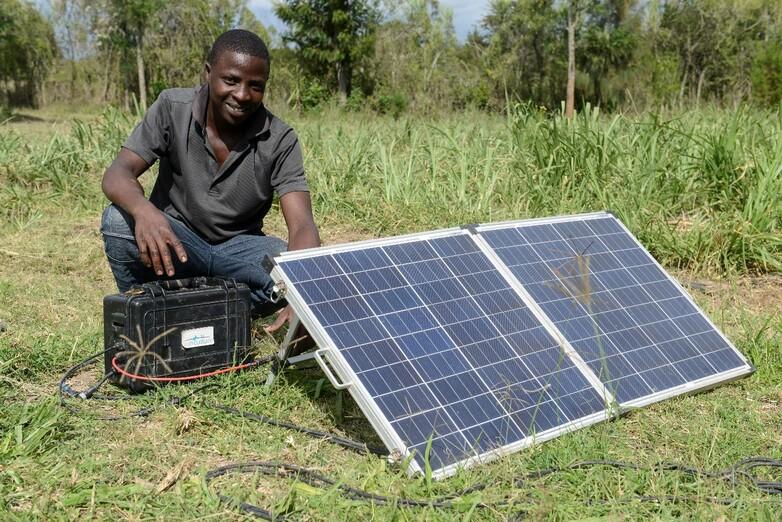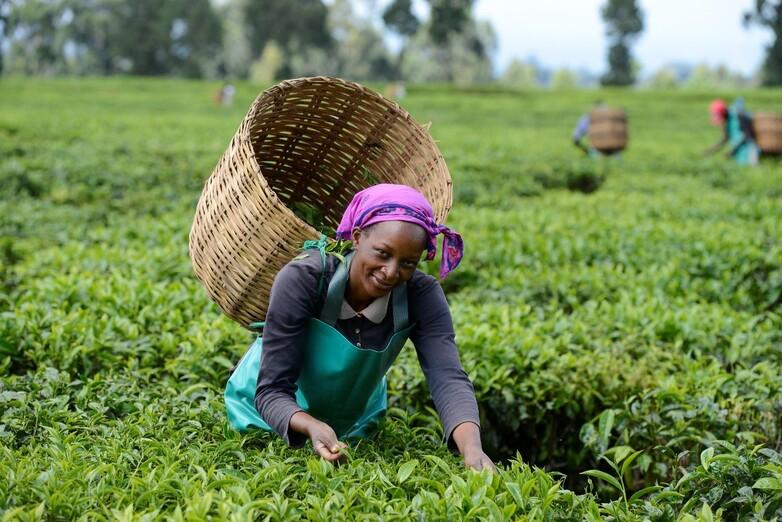Approach
The project implements the German contribution to the international initiative Powering Agriculture – An Energy Grand Challenge for Development (PAEGC). PAEGC is a joint initiative of the Federal Ministry for Economic Cooperation and Development (BMZ), the United States Agency for International Development (USAID), the Swedish development agency SIDA, the US development bank U.S. International Development Finance Corporation (DFC), and the US energy company Duke Energy. The initiative promotes the development and dissemination of innovative, marketable approaches to the use of climate-friendly energy technologies in agriculture in developing countries and emerging economies. PAEGC is currently supporting 24 projects.
In a further 17 pilots, the project is testing sustainable energy solutions and water-saving measures in agricultural value chains, focusing on solar-powered irrigation systems, cooling and energy efficiency. The project gathers knowledge and experience on the interactive Wiki platform ‘Powering Agriculture’. The portal also provides advice on financing, selecting, installing and operating solar-powered irrigation systems. As a result, experts in this field are able to better calculate system efficiency, cost effectiveness and water consumption, and can thus provide better advice to end users, decision-makers and financiers and minimise risks.
The project is based in Bonn and works with local private and state partners. There is also a regional location for East Africa in Kenya.
Results
- Almost 60 per cent of supported innovations have achieved market maturity or are beginning to disseminate climate-friendly energy solutions. For example, Claro Energy, an Indian innovator promoted by the project, supplies mobile solar water pumps that are ordered up to 40 times daily. Another example is Village Infrastructure Angels (VIA), which develops solar-powered processing stations for staple foods and has already sold 230 solar-powered mills in Indonesia, Papua New Guinea, the Philippines and Vanuatu.
- Sixty-nine Kenyan tea factories have carried out energy efficiency measures since 2014. As a result, there have been average reductions of 11 per cent in electricity usage and 10 per cent in firewood consumption in each factory. This corresponds to savings of roughly USD 13.5 million in energy costs. These measures have also prevented the felling of 1.35 million trees, thus saving nearly 12,000 tonnes of CO2. Building on this success, the project is now also promoting energy efficiency in the tea business in Indonesia and Sri Lanka with the aim of producing CO2-neutral tea.
- The partner Solar Cooling Engineering UG has developed an e-learning offer that helps companies, non-governmental organisations and universities to assemble solar cooling systems independently and adapt them to their local circumstances. 100 people in Kenya and Mali have received training for this.
- This project has compiled 30 studies on available sustainable energy technologies.
- Almost 2,500 people have received training in energy solutions in agriculture. Of these, 1,400 interested people participated in a free Massive Open Online Course (MOOC).
- The project has developed a digital toolbox on solar-powered irrigation systems (SPIS) in three different languages (English, French, Spanish). An e-learning course, an app and informative videos supplement the toolbox. The project has trained over 550 people with and in using the toolbox and trained 67 toolbox trainers.

